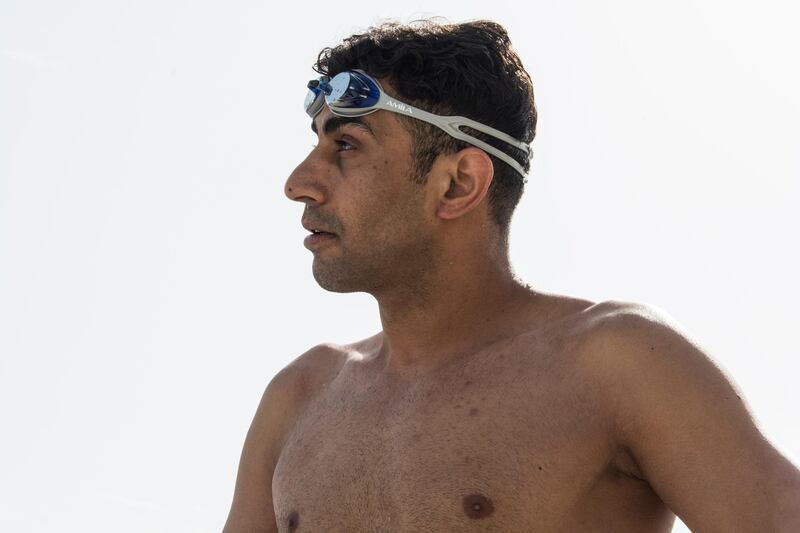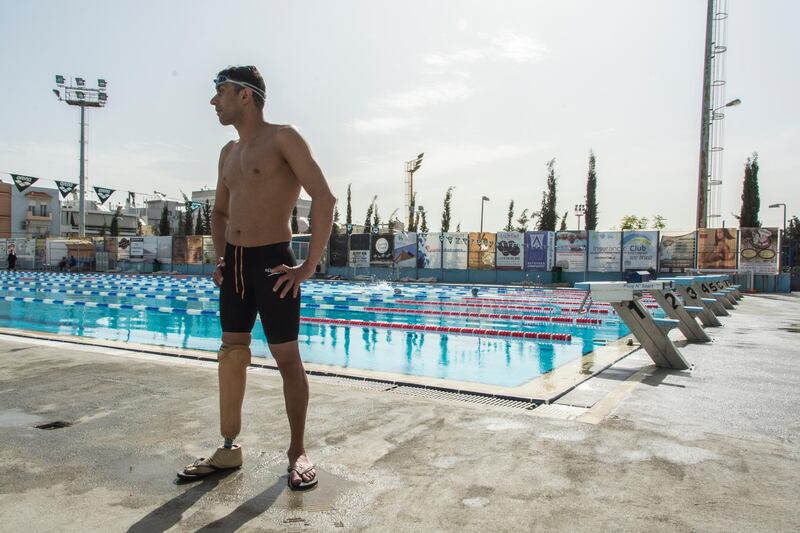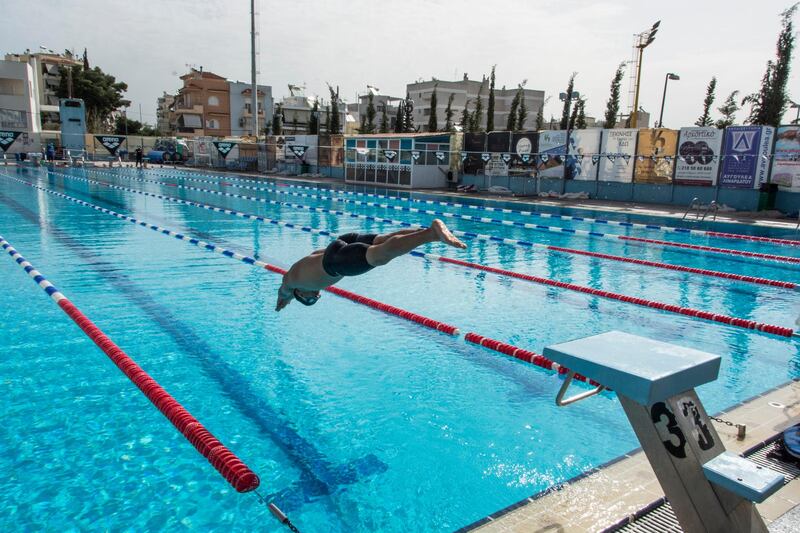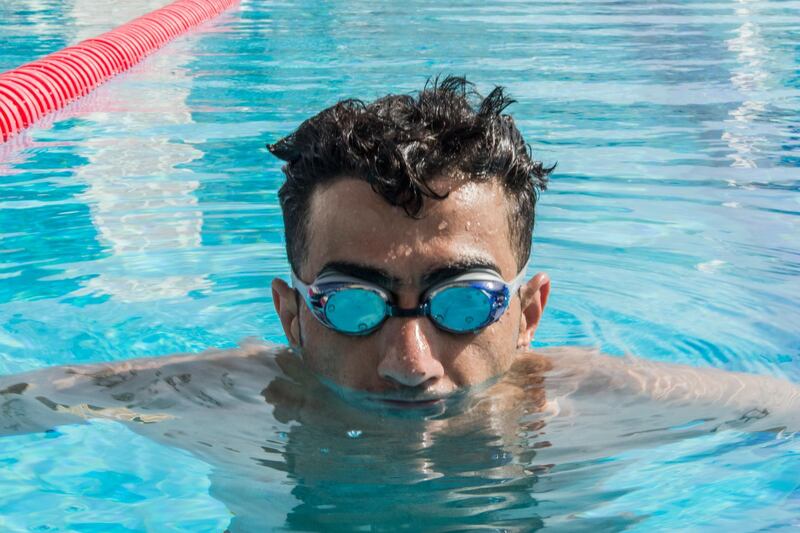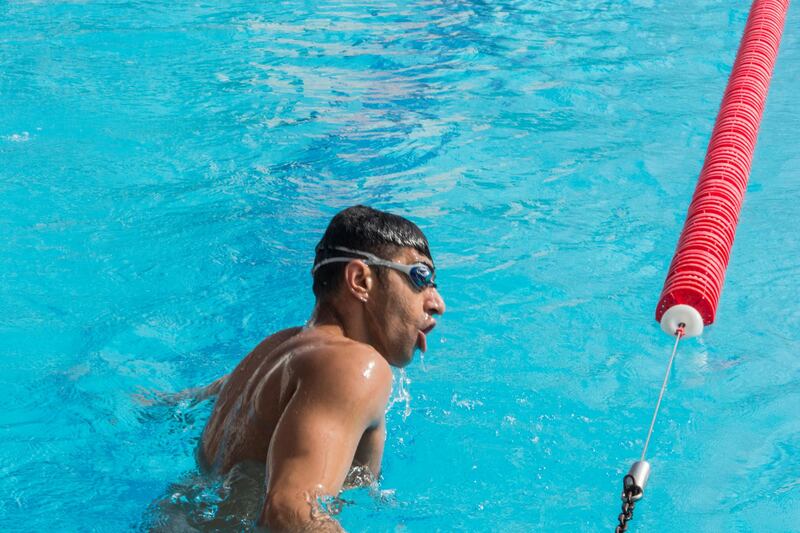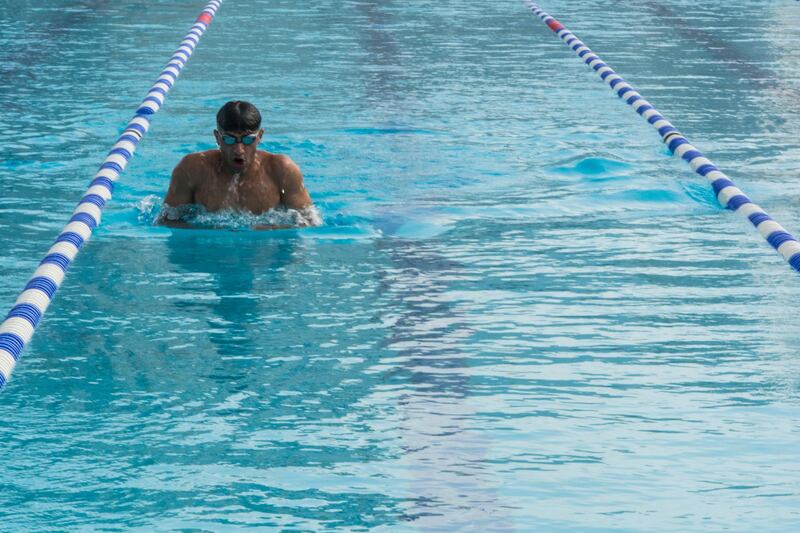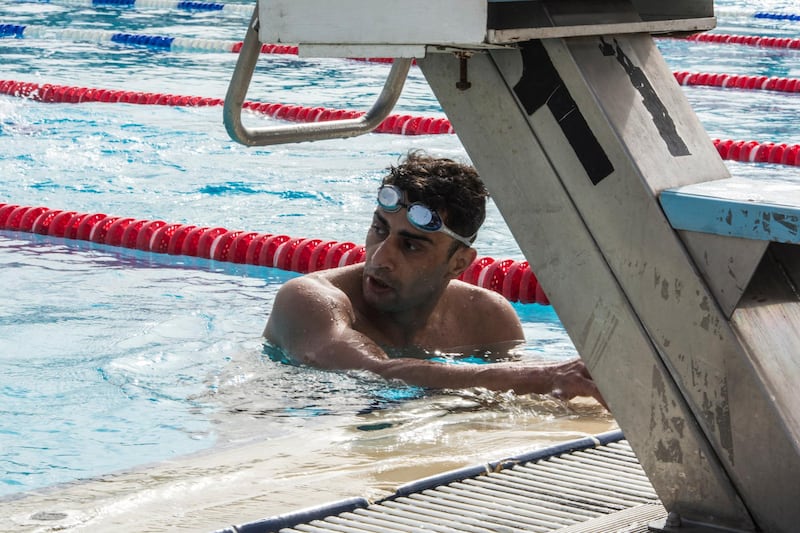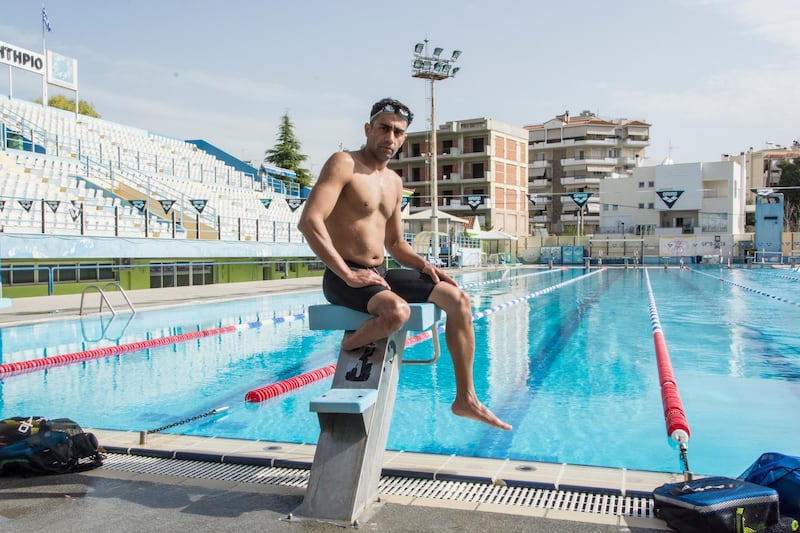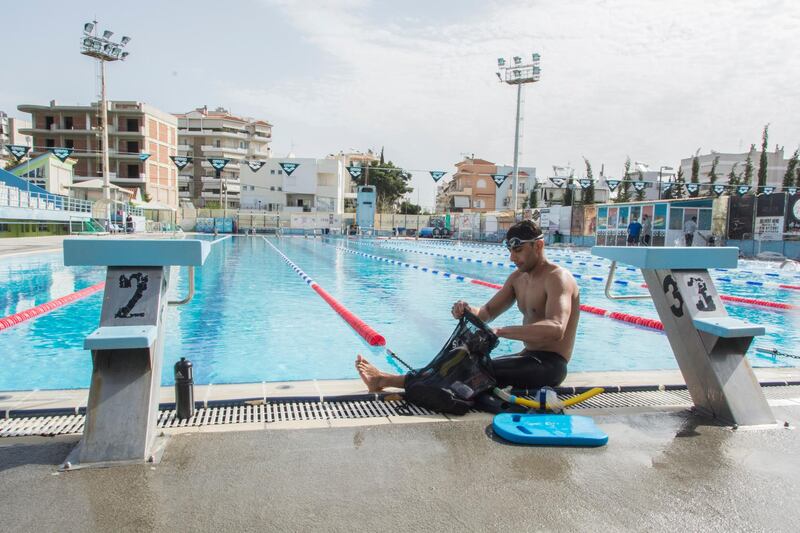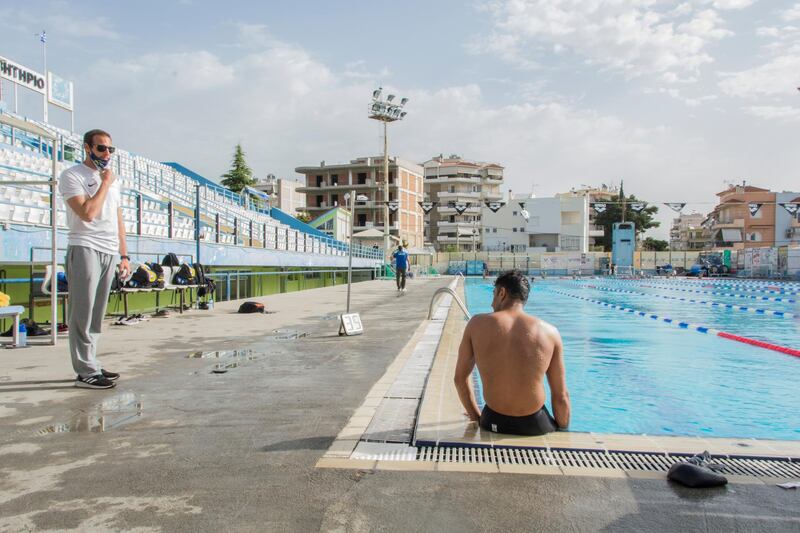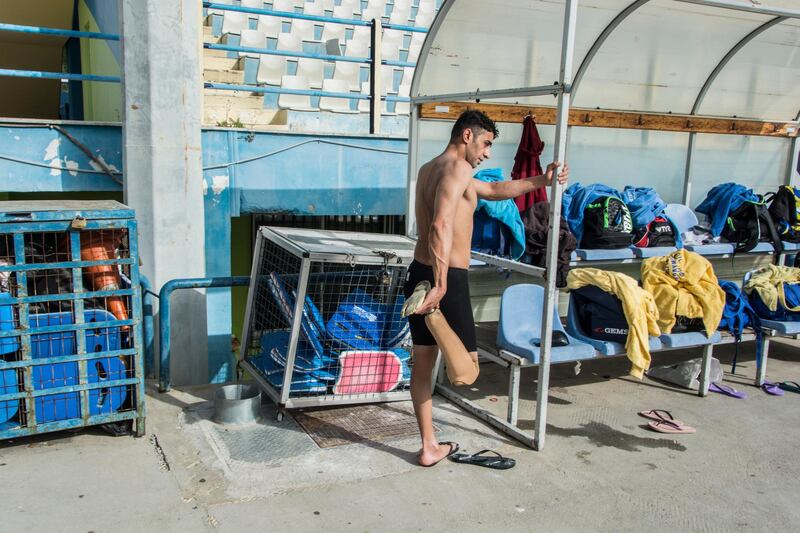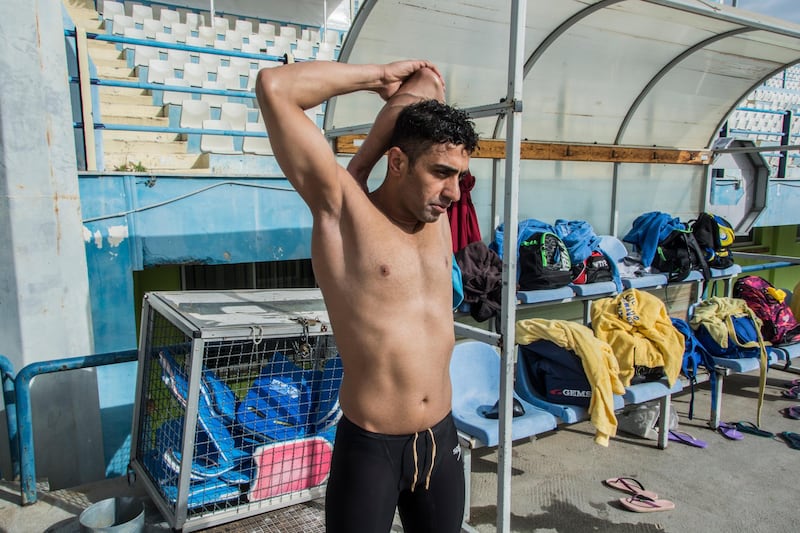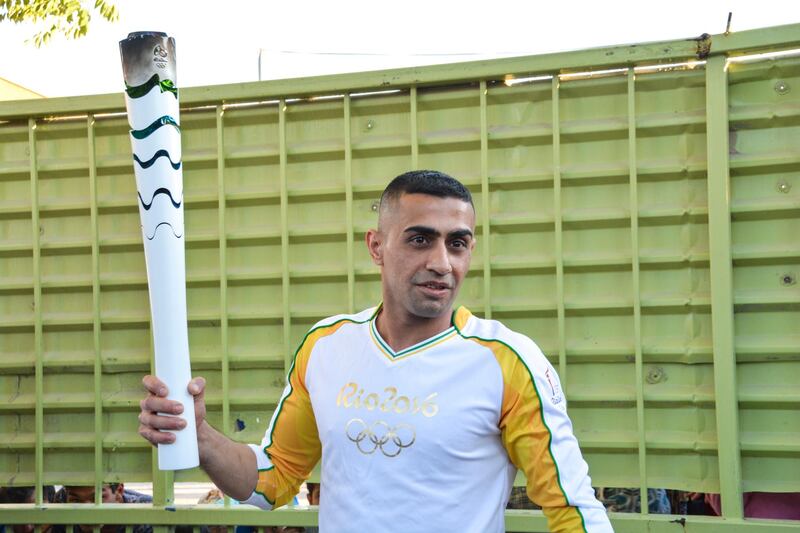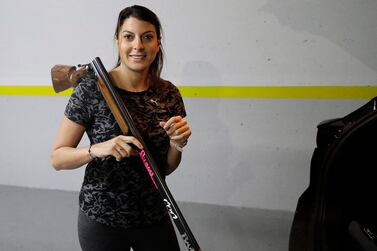As part of our build-up to the Tokyo Olympics we will be profiling Arab athletes and para-athletes as well as those from the Mena region hoping to make it to this summer's Games
When young Syrian swimmer Ibrahim Al Hussein watched the 2004 Athens Olympics on television, he dreamt of being one of the athletes competing for gold.
Little did he know that years later, after surviving a bomb attack that left him disabled, he would train for the first time as a Paralympic athlete in the same stadium he was watching on TV as a child.
After being the flag bearer of the first ever refugee team to compete in the Paralympics in Rio in 2016, Al Hussein, now 32, had only one thing in mind: Tokyo.
"I think of Tokyo since that moment in 2016 when I stepped in the Maracana stadium in Rio," he told The National.
Today he trains hard every day in Athens for a chance to qualify and secure a spot in this year's Refugee Paralympic team. It’s not an easy task. Out of around 60 para athletes of all sports with the refugee status, only six will qualify.
“It’s not just those 60 athletes. There are thousands that would like to participate," he said.
"There are around 80 million people who are refugees all around the world as we speak. About 80 per cent of them left their homeland because of war and many are with disabilities. Everything I’ve been through all these years gave me strength. It’s not easy, but I know I can do it. Deep down I feel I can do it. I have the strength."
Al Hussein started swimming aged five in his hometown of Deir al-Zor in eastern Syria. “My father was a two-time Asia swimming champion in the seventies and was also my coach. He was a very harsh and strict coach."
He would normally train in the municipality’s natatorium, but when he had free time Al Hussein loved swimming in the Euphrates. “It was only 10 feet away from my home and I really enjoyed swimming there whenever I could."
October 2, 2012 is the day that marked his life forever. While trying to help an injured friend, during the first years of Syria's civil war, a bomb exploded next to him. The impact resulted in Al Hussein's right leg being amputated from the middle of the calf. His left leg was also badly injured. “It’s all iron. I don’t have a leg. I’m lucky I didn’t lose it completely and it was only broken,” he said.
Three months later he crossed the same river, but this time for good, on a wheelchair inside a small dingy. “We crossed with a friend of mine at four in the morning. There were soldiers all around the river banks. We thought that if God doesn’t want us to die that day, we won’t die. If I stayed in Syria, I would die anyway,” he recalls.
Arriving in Turkey he stayed for a year and a half, but life there was difficult, especially for people with disabilities. “I had no money and a friend helped me find some cash to cross to Europe,” Al Hussein said. On February 27, 2014, he went from Izmir to the Greek island of Samos along with 18 others having paid a people smuggler €800 ($965). “I wasn’t afraid on the dingy like the rest of the group” he said, “I had nothing left to lose."
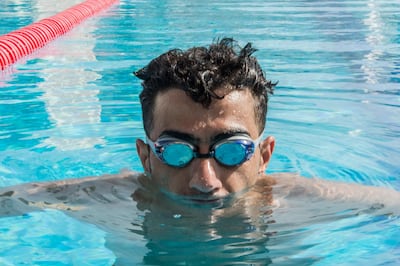
After staying for a couple of weeks in Samos, he was sent to Athens. In the beginning he had nowhere to live and slept on the street. There ge met a fellow Syrian, who wanted to help.
This random meeting eventually took him to the office of Dr Angelos Chronopoulos of Rehabline, who created a new and functional leg for Al Hussein. "Doctor stood to me as a brother from the first moment. Everyone was telling me to leave Greece and go to northern Europe. But I didn't come here looking for money. I came looking for a family, legs and a new home. And I found all three of them here."
A year later he was granted asylum and was able to start building his life again. He found a job in a cafe and started looking for a team that would accept him and put him back in the swimming pool after nearly five years away from the water. And he finally found one.
“It’s not easy to go from swimming with both legs to swimming with only one of them. But my coaches helped me understand how to do it and find my balance. It’s like starting to learn swimming all over again.”
He started swimming every day, and he also joined a basketball team for people with disabilities. Success soon followed.
“A few months after I started training again I came first in a championship in Athens. Then first and second at the Panhellenic swimming championship in 50m and 100m freestyle.”
In 2016 ahead of the Games in Rio, his success caught the eye of the Hellenic Olympic Committee who approached him and asked if he would like to carry the Olympic flame inside the refugee camp of Eleonas in Athens.
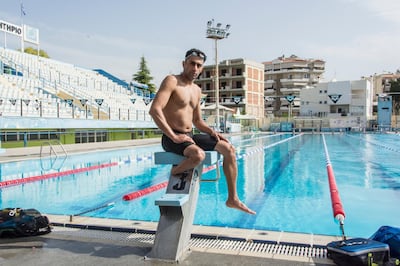
“At the beginning I thought they were joking. I was the first ever refugee to hold the Olympic flame. This gave me so much strength. When I learnt I would be competing in the Games with the Refugee team, I was so excited that I couldn’t even sleep at night.”
He left Rio with the Whang Youn Dai Achievement Award, an “honour presented to the athlete who has performed at an outstanding level and overcome adversity”.
It motivated him to keep pushing. “My current coaches, Alexandros Tsoltos and Alekos Chatzigiannakis, are like a family to me now. They have improved me so much. It’s funny that when in 2004 I was watching Michael Phelps competing in the Athens Games, my coach Alexandros was there, right next to him. But I didn’t know him back then."
Al Hussein has competed in numerous championships and world cups, and continually improved. Last week he came third at the 15th CMAS Finswimming World Cup in Ligano in Italy at 50m freestyle, which gives him an advantage for getting the qualification for the Olympics when the announcement comes next month.
Currently he is also trying to create a basketball team of refugees. “I found a Greek name,” he said with pride. “I will call it Feat."
What Al Hussein wants most is to inspire more people like him to chase their dreams and achieve their goals. That is why he gives online inspirational talks on the Airbnb platform. “I don’t want people to cry with my story,” he said, “I want people to feel positive and that they can make happen whatever they want."
When war in Syria is over Al Hussein would like to return, but only for vacations. “I could never live there again. I have travelled all around the world and Greece is the only place I would like to live.”
